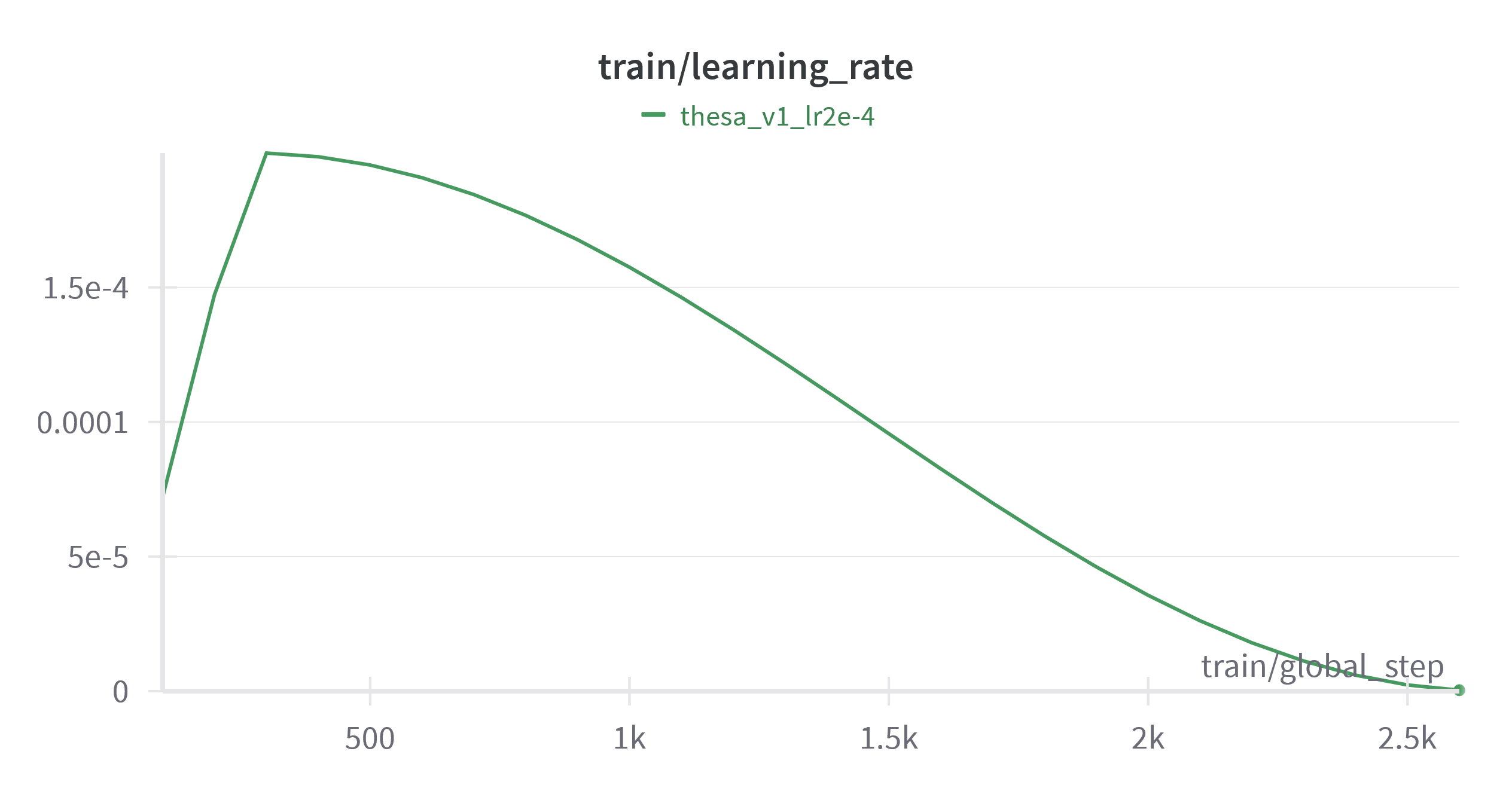Thesa: A Therapy Chatbot 👩🏻⚕️
Thesa is an experimental project of a therapy chatbot trained on mental health data and fine-tuned with the Zephyr GPTQ model that uses quantization to decrease high computatinal and storage costs.
Model description
- Model type: fine-tuned from TheBloke/zephyr-7B-alpha-GPTQ on various mental health datasets
- Language(s): English
- License: MIT
Intended uses & limitations
This model is purely experimental and should not be used as substitute for a mental health professional.
Training evaluation
Training loss:

Training procedure
Training hyperparameters
The following hyperparameters were used during training:
- learning_rate: 0.0002
- warmup_ratio: 0.1
- train_batch_size: 8
- eval_batch_size: 8
- gradient_accumulation_steps: 1
- seed: 35
- optimizer: Adam with betas=(0.9,0.999) and epsilon=1e-08
- lr_scheduler_type: cosine
- lr_scheduler_warmup_ratio: 0.1
- num_epochs: 10
- mixed_precision_training: Native AMP
- fp16: True
Learning rate overtime (warm up ratio was used during training):

Framework versions
- Transformers 4.35.2
- Pytorch 2.1.0+cu121
- Datasets 2.16.1
- Tokenizers 0.15.1
- Accelerate 0.27.2
- PEFT 0.8.2
- Auto-GPTQ 0.6.0
- TRL 0.7.11
- Optimum 1.17.1
- Bitsandbytes 0.42.0
- Downloads last month
- 2
Inference Providers
NEW
This model is not currently available via any of the supported Inference Providers.
Model tree for johnhandleyd/thesa
Base model
mistralai/Mistral-7B-v0.1
Finetuned
HuggingFaceH4/zephyr-7b-alpha
Quantized
TheBloke/zephyr-7B-alpha-GPTQ